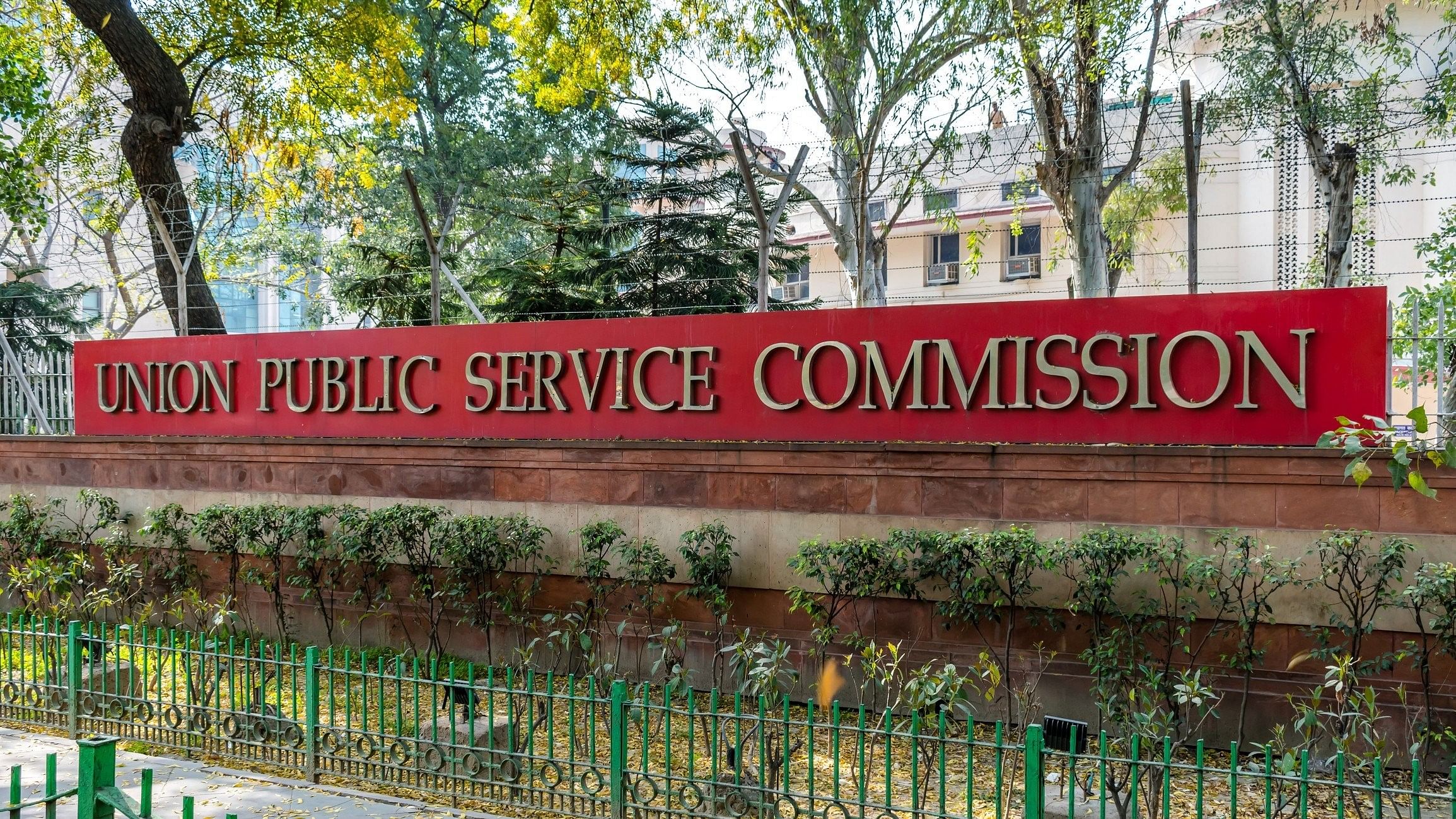
The UPSC office
Credit: iStock Photo
New Delhi: The Union Public Service Commission (UPSC) has set in motion a process to revamp its examination system incorporating technological solutions such as Aadhaar-based fingerprint authentication, facial recognition systems and closed circuit television (CCTV) surveillance using artificial intelligence (AI) to tackle malpractices.
The country's premier recruiting agency conducts 14 major examinations, including the Civil Services Exam, and a number of recruitment tests and interviews in up to 80 centres with the participation of job aspirants ranging up to 12 lakh.
The latest initiative by the UPSC comes close on the heels of the National Testing Agency (NTA) coming under scanner following leakage of question paper for National Eligibility cum Entrance Test (NEET) 2024.
The UPSC floated a tender on June 20 seeking bids from Public Sector Undertakings (PSUs) on providing 'Aadhaar-based Fingerprint Authentication (else Digital Fingerprint Capturing) and Facial Recognition of Candidates and QR Code Scanning of e-Admit Cards' and 'Live AI-based CCTV surveillance service'.
"The Commission intends to make use of the latest digital technology to match and cross-check the biometric details of the candidates and to monitor various activities of the candidates during the examination to prevent cheating, fraud, unfair means and impersonation," the tender document said.
The UPSC will provide details of candidates, including images, captured during the online registration process to the selected service provider for use in Aadhar-based fingerprint authentication and facial recognition systems to verify candidates on exam day. Fingerprint scanners and facial recognition devices will be used for this.
"QR code on the Admit Card (containing roll number of the candidate) should be scanned to auto-fetch the candidate’s details from Application Database (provided by UPSC). In case QR code on Admit Card is not scannable, then manual entry of candidate’s roll number from Admit Card has to be done,” the tender document said.
There will be a real-time attendance monitoring system through a secured web server. The service provider will also have to ensure that they have captured the fingerprint and photograph of each and every candidate who has appeared in the examination at each venue.
To ensure that there are no irregularities during exams, the UPSC wants CCTV/video surveillance and live broadcast to monitor various activities of candidates and other persons deployed to conduct examinations.
The service provider will be required to install an adequate number of CCTV colour cameras in every classroom, with at least one camera for every 24 candidates, at the entry and exit gates to the exam centre, and in the control room where pre-examination sensitive material will be kept and opened, and post-examination sensitive material will be packed.
The service provider will have to hold the data on its secured cloud server with 256-bit encryption for a minimum period of one year from the date of the examination or 30 days after the declaration of final result of the examination, whichever is later.
